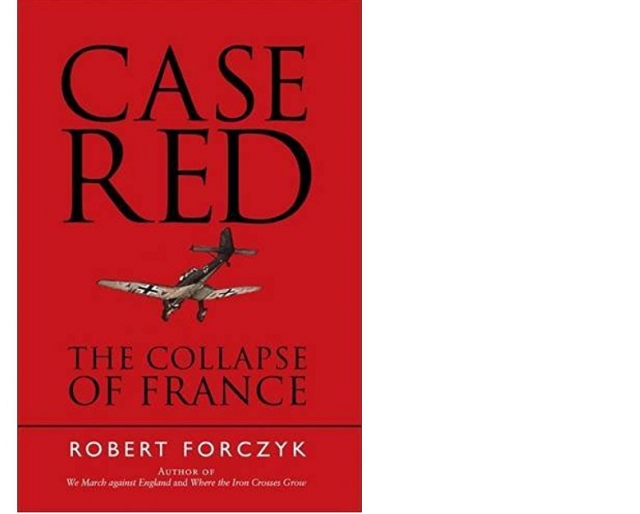Case Red: The Collapse of France, 1940
Book review

Case Red: The Collapse of France, 1940, Robert Forczyk, Osprey Publishing, 2017, 464p, £20-00. ISBN 978-1-4728-2442-4
Case Red is a deliberate and very helpful attempt by the American military historian Robert Forczyk to refocus our perspectives on exactly what did happen in June 1940. His view is that most historians devote a great deal of their efforts in an attempt to analyse what is known as ‘Case Yellow’, the military collapse which led to the evacuation of British and allied troops from Dunkirk, but that they do not pay equal attention to the month that followed during which metropolitan France collapsed, to be replaced by the establishment of the client French Vichy government.
In this highly technical work, Forczyk examines all the preconceived ideas that historians may have about the prevailing situation in 1940 in France. It is quite possible to appreciate his analysis without being overwhelmed by the technical detail about the equipment available and the strategies employed.
There are many interesting and revealing insights. For example Forczyk argues that the relatively modest investment against the totality of expenditure on the Maginot Line was not the disaster often depicted. What the French strategists had intended initially worked satisfactorily and the Germans did not really attempt to attack on that flank because they recognised the robust nature of the defence. He also reveals that, despite the massive withdrawal of troops from the south eastern border because of the urgent needs elsewhere, the French border with Italy was only marginally threatened by the late and tentative participation of Mussolini in the conflict.
What he does offer is a very critical analysis of the British position, less committed to a joint venture than we might have anticipated, with, for example, some RAF support which might have made a significant contribution to delaying the German advance being held back in the UK rather than being deployed in Europe.
At the end he makes the very telling point that ‘all of the western democracies failed to deter the outbreak of war because their politicians and citizens deluded themselves into thinking that abhorrence of war was sufficient to protect them from war’ and that this had allowed their defences to ‘deteriorate into mediocrity’, from which they had to be rebuilt. He also makes a very serious point about collective security: such a system can be undermined by members who are unwilling or unable to make meaningful contributions, as France found in Belgium in 1940.

